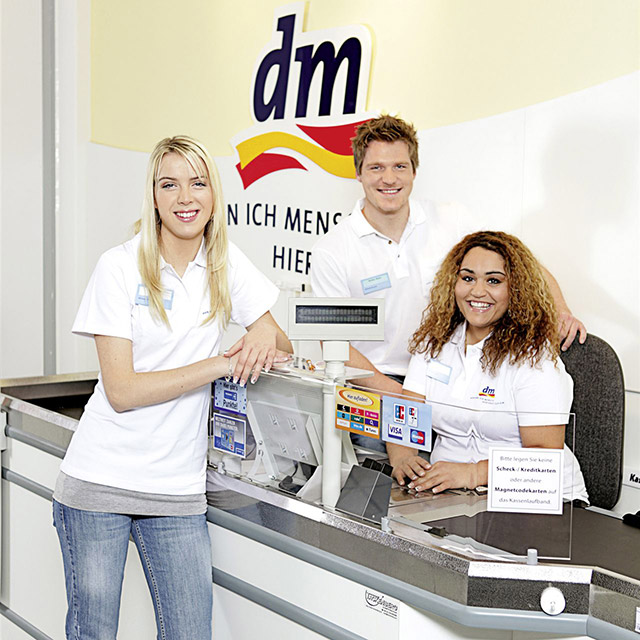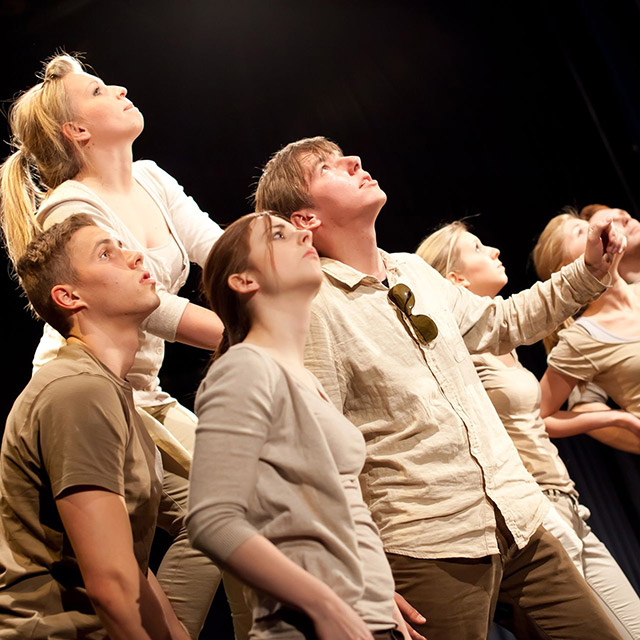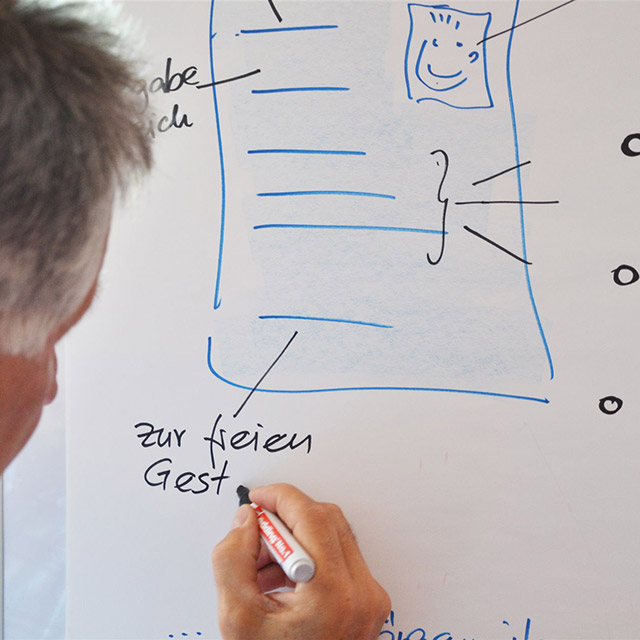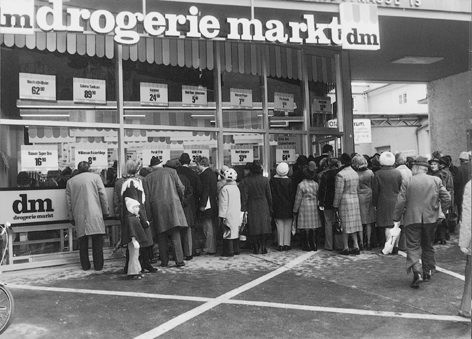dm-drogerie markt
LIDA – LERNEN IN DER ARBEIT (LEARNING AT WORK)
“Tell me and I’ll forget, show me and I’ll remember, let me do it and I’ll understand.” That’s the idea behind the dm training component LidA – Lernen in der Arbeit (Learning at Work). dm has borrowed this sentence from Confucius; the concept is homemade.
In practice, it looks like this. The instructor delegates a task to the apprentice. If it is a difficult task, the instructor first lets the apprentice theoretically work out how to solve the task. Next, trainer and apprentice reflect on the possible solutions. Then the apprentice starts with the implementation. Easier tasks he can start, skipping the initial period of reflection. The apprentice can find solutions to his task on the corporate intranet, the customer or employee newsletter, or in several work materials
“What happens if I make a mistake?” is a question often asked by apprentices. “That’s exactly the meaning of LidA,” replies store manager Ulrike Elm, who helped develop the concept in 2000. “You learn from your mistakes.”
If the apprentice does not receive the answer to a task but has to work it out on his or her own, the apprentice will deal with it more intensively. That way, the apprentice will remember all the discovered solutions more easily. From a neurobiological point of view, this is easily explained. Every time the brain finds a solution to a problem, it rewards itself and releases neuroplastic messengers. These ensure that connections which the brain uses for problem-solving are stabilized. As a result, these well-established networks can be activated at any time later, and older, related knowledge can be accessed quicker
“In any case, you receive a counter question first. I am learning a lot here about myself,” says Viktoria Schwab, who spends part of an integrated study at Alanus University. In her placement at a dm store, she receives firsthand experience with the LidA principle. “Only now I understand how difficult it must be for the instructor, since I am, for the younger apprentices, in charge now as well. As an instructor, you have the impulse to help the apprentice. However, you always have to take yourself back and not hand over the solution. You need to let them find it themselves.”
At times, everything has to go fast. The instructor, therefore, needs discipline and patience to let the apprentice find his or her own solutions without giving it to the apprentice. “This is not possible in all situations. That’s quite human. In addition, it takes a lot of sensitivity to find tasks that are neither too hard nor too easy,” reflects consultant for training and education Manuela Franz, who takes care of the instructors of 45 branches. “But it’s nice to see how their self-confidence visibly grows if the apprentice has worked out a suitable solution all by himself. In some cases, his own solutions are even more suitable for the individual than the one the instructor would have chosen.”
After two and a half years of preparation, during which confidence in their abilities steadily grows, a druggist enters the Learners Branch, which was introduced in 2001. dm leaves its learners from the third year to run entire branches for a few weeks. In the meantime, other colleagues work in other dm branches to make room for the young people. As is often the case with dm training, the Learners are given a lot of space. Their work starts with the question, “Who is boss?” Most will agree on a rotating system. This ensures that for the four weeks of training, the Learners can assume as many different roles as possible.
Throughout Germany, there are annually up to 34 branches run by apprentices. Sometimes the customers see the friendly sign at the entrance, but usually they just see a lot of new faces in the store.
FOR THE GOOD SPIRIT TO REMAIN
In addition, dm grew strongly, a desirable circumstance which also meant that many new employees were hired who did not know the growing entrepreneurial spirit. They had to experience it gradually. The rapid growth also carried the potential risk that the personal climate between the employees would change, basically because the number of branches and colleagues rose quickly.
After sufficient internal advertising for the question “How do we preserve the good spirit,” Kerstin Langer received support from many levels, for example, from dm CEO Christian Harms. Harms believes—in contrast to some other recruiters in the company—not only in terms of systems and processes, but also in people. “It is an objective of dm to create a space to bring biographies to life” is a quote of his shared by an enthusiastic young learner. This initiated the working group “Dm-spirit” in the year 2010.
Through the staff newsletter, work meetings and the intranet, a first awareness of the culture and spirit of enterprise was created. Then employees were informed that there was now an official working group and everyone was invited to participate. Meanwhile, one-day forums were established as a way of deepening the work. These forums were held several times per year in different locations. During these forums, there is no hierarchy among the participants. A young apprentice remembers that he once found himself next to the manager of the 44,000-employee company at the dinner table, communicating with him on equal footing. The events are consciously free of any structures. Self-organization and self-responsibility are expected of all participants.
Within the framework of this experimental process, tangible concepts from the everyday life of the company are introduced, for example, things like “Kindness between the employees” or “Decision-making in the team.” From these concepts, new initiatives can arise. For instance, they filmed a “Kindness Video” and made it available via intranet. This video consisted of interviews of employees on the topic of kindness. “This enabled us to once again raise awareness of kindness in the way we deal with each other,” says the employee from the corporate division of Marketing & Procurement who introduced this topic in the forum.
It is those small initiatives which are supposed to be created and which in turn get support through the working group. The objective is to take the thoughts of individuals and make them available to many. “When a tree is growing strongly—as dm is doing right now—then you can see from the outside how the branches develop. However, what we, from the working group, need to pay attention to is the flourishing of the roots,” explains one trainer about his understanding of the working group dm-Spirit.
COMPANY FACTS
dm- drogerie markt was founded in 1973 by Prof. Götz W. Werner, with its first store in Karlsruhe. In 1985, dm started with the training of apprentices. In 2000 and 2001, the training concept was realigned.
The Federal Institute for Education awarded dm the Innovation in Continuing Education Prize of 2003. In 2004, the company was the primary winner of the Initiative Training Prize, granted by the German Chamber of Industry and Commerce, the Otto Wolff Foundation and the Wirtschaftswoche. (Business Week)
dm runs around 3,149 markets and employs 52,000 people. In the fiscal year 2013-2014, the company achieved sales of around 8.3 billion Euros, 6.4 billion alone in Germany.




